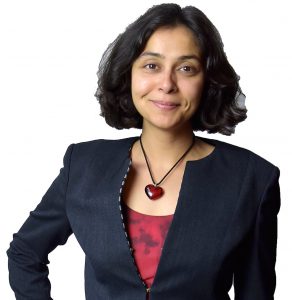Young Scientist Medal for astronomer Pratika Dayal

The 2017 IUPAP Young Scientist Prize in Astrophysics has been awarded to Dr. Pratika Dayal of the Kapteyn Astronomical Institute, University of Groningen. She receives the medal for her work as a theorist, combining analytic theory, numerical simulations and data interpretation, which has significantly contributed to building tantalising bridges between fields as diverse as astrophysics, particle cosmology and astrobiology.
Since 2016, Pratika Dayal has held an assistant professorship and Rosalind Franklin Fellowship at the Kapteyn Astronomical Institute where she is leading calculations for the forthcoming era of 21cm cosmology with the Square Kilometre Array. In addition to support from the University of Groningen, her group has been supported by the European Research Council’s starting grant since 2017.
The Young Scientist Prize is granted by the IUPAP, the International Union of Pure and Applied Physics. Awardees must have up to 8 years of research experience following PhD. The award consists of a medal, certificate and a monetary value of 1000 Euros.
Dayal will be presented the medal at the 29th Texas Symposium in Cape Town (South Africa) from 3-8 December 2017.
More news
-
17 February 2026
The long search for new physics
-
10 February 2026
Why only a small number of planets are suitable for life
